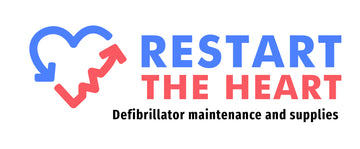AEDs for the Workplace: Essential Information for Creating Heart-Safe Work Environments
Workplaces require diligent attention to safety and preparedness to protect the wellbeing of employees, clients, and visitors. Providing a heart-safe working environment equipped with automated external defibrillators (AEDs) demonstrates a company's commitment to prioritising the health of its workforce. AEDs play a vital role in addressing sudden cardiac arrest (SCA), offering a rapid and effective response that can greatly improve survival rates and provide a sense of security.
In this informative article, we will delve into the importance of AEDs in the workplace, discussing the advantages of implementing AED programs and the practical steps required for integration. We will further examine the value of employee training in AED usage and cardiopulmonary resuscitation (CPR), the essential maintenance practices for AEDs, and the requirements for legal and industry compliance.
As a trusted AED supplier in Australia, Restart the Heart is dedicated to fostering heart-safe environments across various sectors, including the workplace. Our commitment to providing high-quality AED products, expert guidance, and comprehensive training solutions ensures businesses receive the support they need to create safer work environments, helping to enrich company culture and safeguard the wellbeing of staff and clients alike.
Why AEDs Matter in the Workplace
Addressing Sudden Cardiac Arrest Scenarios
Sudden Cardiac Arrest (SCA) can strike without warning, affecting people of all ages, fitness levels, and occupations. In a busy workplace, the presence of an AED can be the difference between life and death when responding to an SCA. AEDs deliver a controlled electric shock to the victim, potentially restarting their heart, which is crucial during the critical moments before emergency medical help arrives. By investing in an AED and appropriate training, employers convey their commitment to safety and contribute to their staff's overall wellbeing.
Steps to Creating a Workplace AED Program
Ensure a Comprehensive and Effective Plan
Developing a workplace AED program requires thoughtful planning and execution. Employers can follow these steps to set up a successful program:
- Form an AED committee: Comprising representatives from management, employees, health and safety professionals, and a medical advisor to oversee the program, the committee will ensure a well-rounded approach to implementing AEDs in the workplace.
- Evaluate risks and requirements: Assess potential hazards within the work environment and the number and type of AEDs necessary to provide suitable coverage.
- Consult with professionals: Consult an AED supplier like Restart the Heart for expertise and guidance on selecting appropriate AEDs for your workplace.
- Strategically install AEDs: AEDs should be easily accessible and visible within a workplace, taking no longer than 3-5 minutes to reach in an emergency. Employ clear signage directing employees to their locations.
- Develop an emergency response plan: Create standardised procedures detailing actions during a cardiac emergency, including calling emergency services, performing CPR, and using AEDs.
- Communicate and engage: Ensure all employees are aware of the AED program and engage them in ongoing discussions and training regarding SCA response.
Training Employees in AED Usage and CPR
Empowering Staff with Life-Saving Skills
AED training is pivotal in empowering employees to act decisively and effectively during an SCA scenario. Employees who receive AED and CPR training learn life-saving techniques, giving them the confidence and knowledge necessary to make a difference in an emergency. By providing this training, employers demonstrate their dedication to safety and help build a more resilient, cohesive, and prepared workforce.
AED Maintenance
Ensuring Reliable Performance When It Matters Most
Proper maintenance is essential for ensuring that AEDs remain fully operational and ready for use. There are several key maintenance practices that should be carried out consistently:
- Regular inspections: Check AEDs periodically for any signs of damage or malfunction. Follow the manufacturer's guidelines for inspection timelines.
- Battery life management: Monitor battery life and replace batteries as recommended by the manufacturer.
- Electrode pad replacement: Replace expired or damaged electrode pads in line with the manufacturer's advice.
- Safe storage of AEDs: Store AEDs securely in appropriate cabinets or cases, and provide visible signage indicating their locations.
Legal Compliance and Industry Standards
Safeguarding the Workplace with Regulatory Adherence
Workplaces must adhere to relevant laws and regulations surrounding AED provision and management. Compliance requirements vary between states and territories in Australia, so it is essential to consult local governing bodies and maintain adherence to AED manufacturer guidelines. Fulfilling these obligations protects both the company and its workforce, further enriching the establishment of a heart-safe environment.
Restart the Heart's Support for Businesses
Partnering with Businesses to Foster Safe Work Environments
Restart the Heart is dedicated to supporting businesses in their endeavour to create heart-safe work environments. As a trusted AED supplier in Australia, we specialise in providing quality AEDs tailored to various needs, as well as offering crucial training and expert guidance to businesses seeking to implement AED programs. With Restart the Heart as your partner, you can have peace of mind knowing that your staff is protected and empowered to face SCA emergencies.
Conclusion
Incorporating AEDs into the workplace is a crucial step in prioritising the safety and welfare of employees, visitors, and the entire business community. A thorough AED program, combined with employee training and adherence to regulatory requirements, ensures that businesses are better equipped to manage SCA scenarios. Teaming up with Restart the Heart offers businesses access to quality devices and expert advice, fostering a heart-safe culture that adds intrinsic value to the organisation.

